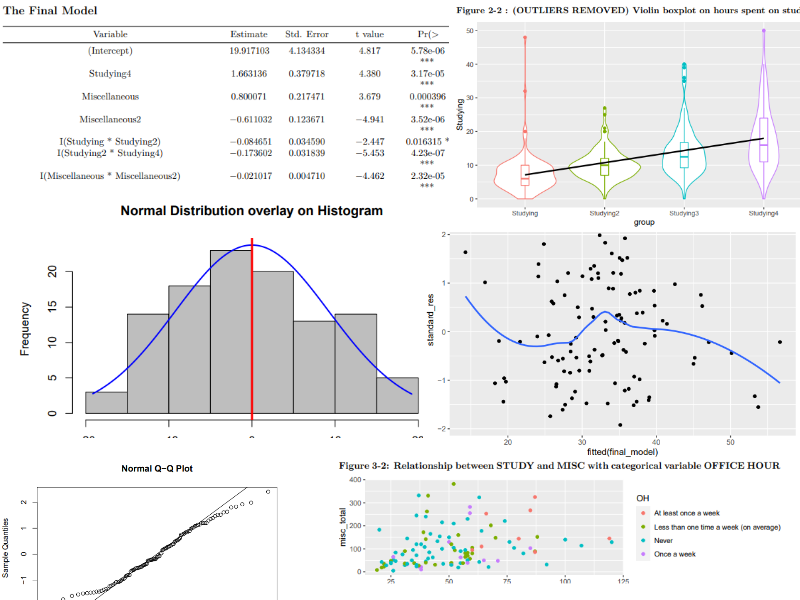Joshua Joel Cuevas

Introduction
Hi, I'm Josh. A recent graduate with passions in economics, data science, ML and cloud computing.
"This intersection therefore is the use of AI to organize and create insights from huge data through cloud computing and will be something many companies will likely be incorporating in the future."
View My LinkedIn Profile
Regression Analysis of Student Success Factors: STA302 Final Project

Sure, here’s the revised documentation without the prompts:
Project Title: Analysis of Factors Affecting STA302 Term Test Performance
Project Overview: During undergrad, as a capstone project to STA302 Methods of Data Analysis, me and my team were studying how performance on the STA302 term test connects to things like studying hours, hours spent thinking about COVID, hours spent on miscellaneous factors, and hours in Office Hours(OH). Using a regression model, we aimed to pinpoint the heavy hitters among these factors, the ones really calling the shots on your test results.
Motivation and Background: This project was initiated to provide insights for both professors and students on optimizing study habits and other activities to enhance academic performance. The goal was to quantify the impact of different factors on term test results, thereby offering practical recommendations for better academic outcomes.
Tools and Technologies:
- Programming Languages: Python
- Libraries: Pandas, NumPy, SciPy, StatsModels, Matplotlib
Methodology: We utilized Python for data manipulation and statistical analysis. The methodology involved:
- Data Collection: Gathering data on study hours, COVID-related thoughts, miscellaneous activities, and office hours.
- Data Cleaning: Ensuring data quality and consistency.
- Exploratory Data Analysis (EDA): Visualizing the data to understand distributions and relationships.
- Regression Analysis: Building a regression model to identify the key factors influencing term test performance.
- Model Evaluation: Assessing the model’s accuracy and reliability using metrics such as R-squared and p-values.
Challenges and Solutions: One significant challenge was dealing with missing or inconsistent data entries. We addressed this by employing data imputation techniques and validating the dataset rigorously. Another challenge was ensuring the model’s assumptions were met, which we tackled through diagnostic testing and model refinement.
Results:
- Findings: Study hours and office hours were positively correlated with better test performance, while time spent on COVID-related thoughts had a negative impact.
- Visualization: Included bar charts and scatter plots to illustrate the relationships between the factors and test scores.
Impact: The project provided actionable insights for optimizing study strategies. Professors can use these findings to guide students on effective study practices, and students can prioritize their time better to improve academic performance.
References and Resources:
- “Introduction to Statistical Learning” by Gareth James et al.
- “Python for Data Analysis” by Wes McKinney
Notes and Observations: The project highlighted the importance of mental health and its impact on academic performance, suggesting a need for better support systems for students during challenging times. It’s not just number-crunching – we can create practical solutions for professors and students. Quantifying how best to spend your time to make acing courses a breeze.
Regression Analysis of Student Success Factors: STA302 Final Project